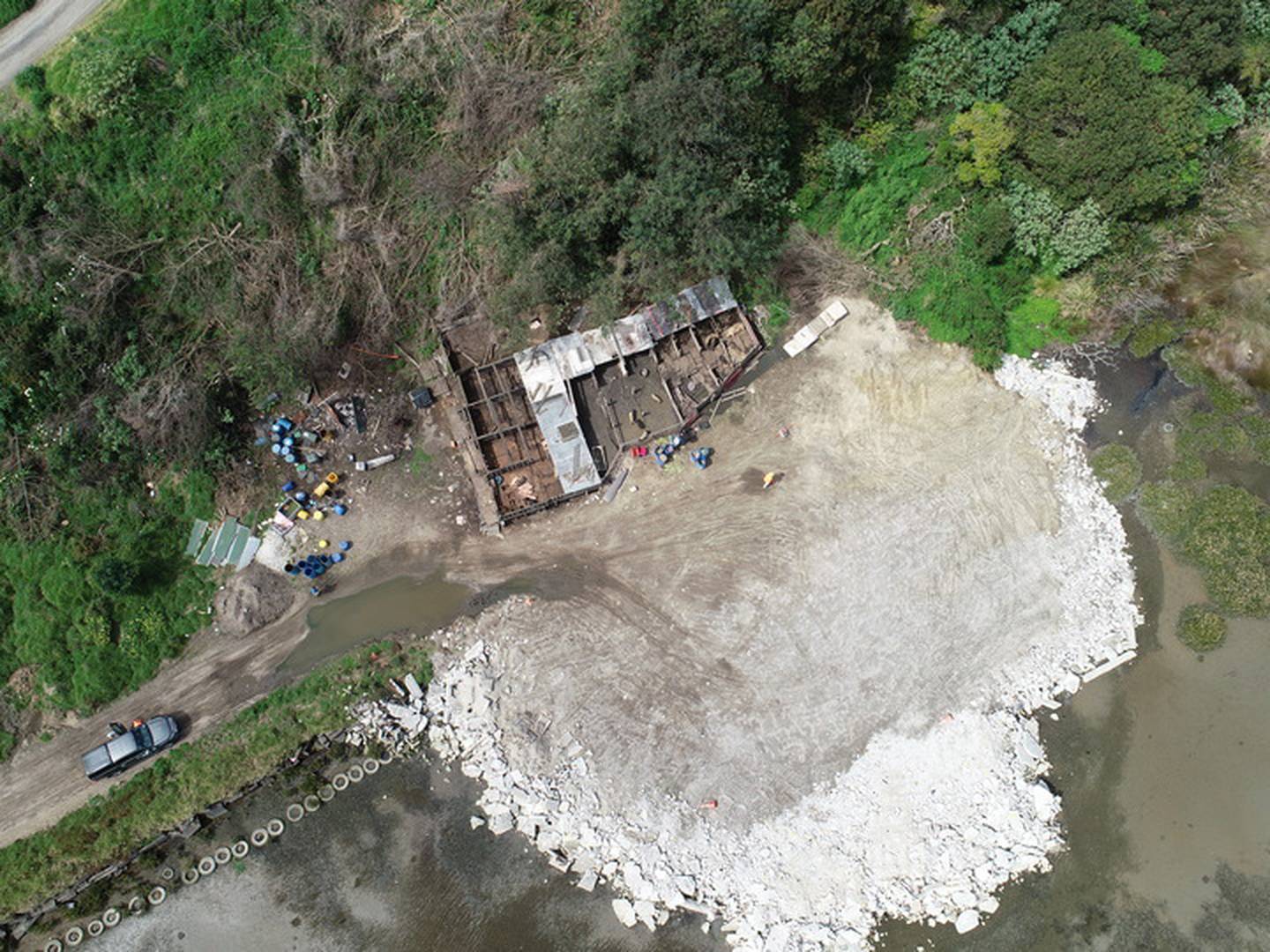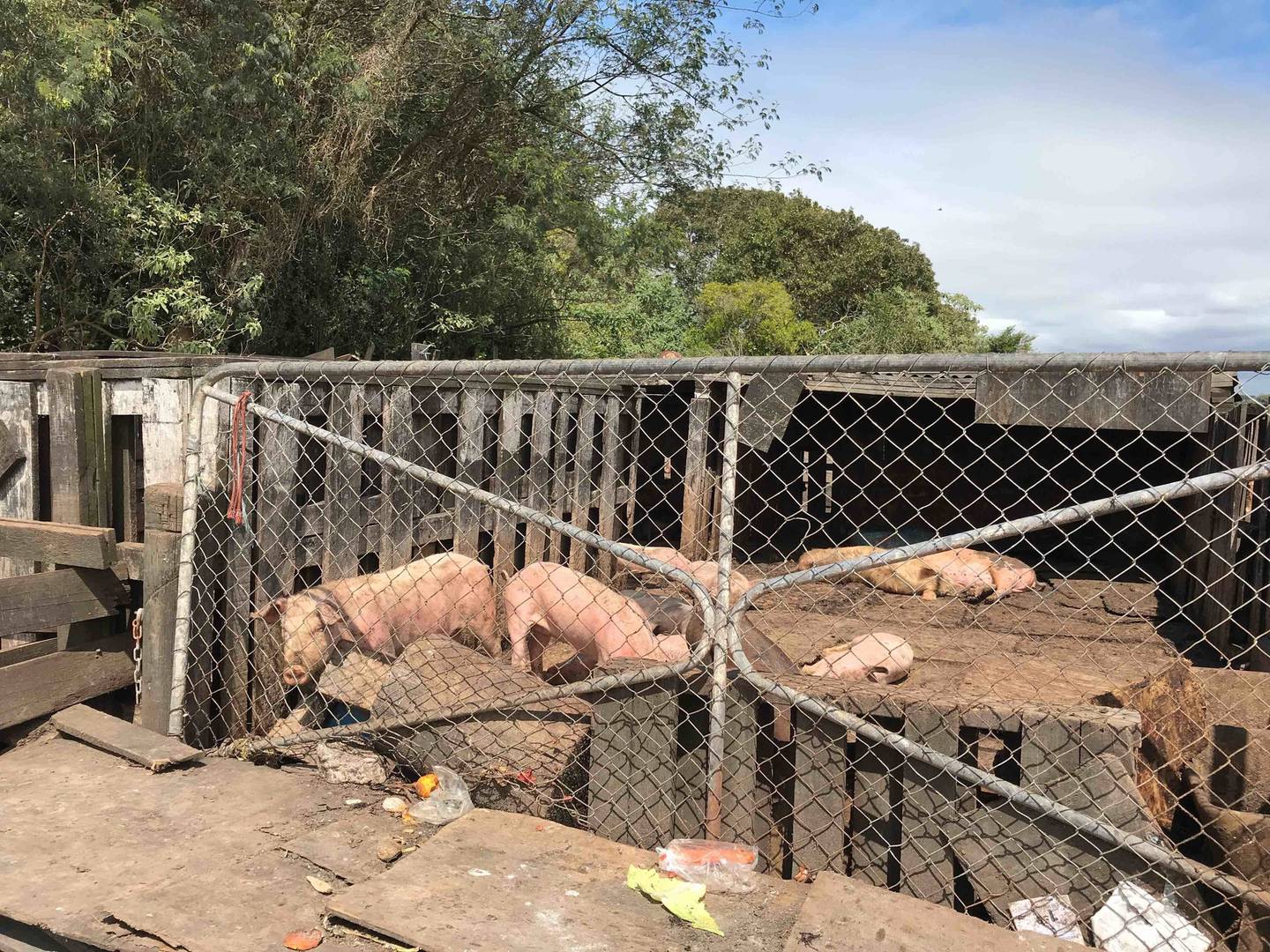

A former Australian politician turned Māori-sovereignty activist who illegally attempted to build his family a park by reclaiming Tauranga Harbour has been sent to prison - becoming just the ninth person to be imprisoned for offending under the Resource Management Act.
But the man at the centre of the case continues to believe his status as mana whenua exempts him from all New Zealand law, and has already filed an appeal in the High Court challenging the conviction.
Tio Faulkner, who represented himself, was on Thursday sentenced to three months and two weeks' imprisonment for offending which saw him dump nearly 1500cu m of rebar and concrete waste into the category two protected area, in an effort to extend his Matapihi property.
The sentence followed Faulkner being found guilty of six charges related to the illegal earthworks after a trial last November.
The charges, laid by the Bay of Plenty Regional Council, included one count of unlawfully reclaiming the foreshore, one count of unlawfully disturbing the foreshore, and two charges of discharging faecal bacteria into the harbour.
Faulkner was also facing sentencing on two additional charges of contravening an abatement notice and failing to provide information as directed by an enforcement officer.

Faulkner dumped nearly 1500 cubic metres of concrete and steel waste into Tauranga Harbour. Photo / Supplied
The offending began at some point in mid-2019 after Faulkner returned to New Zealand from Australia, where he had been working at the highest level of the country's governing Liberal Party.
He spent months growing the section of land, dumping hundreds of kilograms of concrete and rebar into the harbour.
Faulkner also began farming pigs on the property - and allowed effluent to flow directly into the harbour.
In July 2019, a council officer conducting aerial surveying noticed the new piece of land and immediately informed council compliance officers.
Over the next 12 months, officers executed multiple search warrants at the premises and issued a number of abatement notices.
Faulkner failed to follow the abatement notices, continuing to both dump waste into the harbour and allow pig run-off to flow into the sea. The council eventually charged Faulkner in late 2020.

Faulkner previously worked as the president of the Canberra Liberal Party, attending meetings and rubbing shoulders with Australian Prime Ministers. Photo / Canberra Times
At an eight-day trial in July last year, Faulkner himself defended the six charges, putting forward a variety of defences that ranged from conducting the earthworks to prevent coastal erosion to his more prominent claim of being exempt from New Zealand law.
In the end, Judge Prudence Steven determined in a November decision that Faulkner was guilty on six of the charges.
Sentencing a "prolonged process" – judge
Since being found guilty in November, the process to sentence Faulkner has seen multiple adjournments, predominantly due to a requirement that Faulkner produces his financial statements.
Faulkner initially appeared for sentencing on the six charges on January 19 this year. However, it was discovered he had failed to meet with a corrections officer to determine whether or not he had the financial means to pay a fine, should he be ordered to pay one.
Faulkner consistently refused to meet with the officer, leading to Judge Steven remanding Faulkner in custody until an adjourned sentencing date came around.
Days later, Faulkner and his support person Georgina Maxwell filed a habeas corpus claim at the High Court, arguing that Faulkner was imprisoned illegally.
That claim was thrown out by Justice Ian Gault, who determined the custody was lawful.
Faulkner appeared in court for sentencing again a fortnight ago, but that too was adjourned after the court realised it hadn't received adequate reports from the Department of Corrections to determine Faulkner's suitability for a community sentence.
The third and final sentencing date, set down on Thursday, heard arguments from both prosecutor Adam Hopkinson and Faulkner.
Hopkinson told the court that from Faulkner's financial statements, it's clear he did not have the ability to pay a fine - a view Judge Steven agreed with.
Hopkinson said that taking into consideration the sentencing elements of deterrence and accountability, a prison sentence appeared to him to be the only possible outcome.
A starting point of between three and six months was put forward by Hopkinson.

A piggery operated on the edge of the reclaimed land at one point held 49 pigs, with run-off flowing into the harbour. Photo / Supplied
Maxwell, a support person acting for Faulkner, submitted that he should be granted a discharge without conviction.
However, that submission was immediately thrown out by Judge Steven as she reminded the defence the convictions had already been handed down.
In determining her sentence, Judge Steven said if she was considering a fine for the offending, a figure of $200,000 would have been appropriate.
But in the absence of any money to service a fine, imprisonment was the only remaining option, considering the seriousness of the crime.
"A sentence of imprisonment is necessary to achieve sentencing act purposes of accountability, responsibility, denunciation, and deterrence," Judge Steven said.
"Deterrence is always important in sentencing for RMA offences, but particularly here, the deterrence aspect looms large."
Judge Steven said Faulkner's actions were "shameful".
"Your actions were deliberate; they were sustained and they were unrepentant.
"I fail to understand how you can genuinely believe these works fell within your rights as mana whenua."
In totality, Faulkner was sentenced to a period of three months and two weeks in prison, and ordered to pay a sum of $5000 in costs associated with the prosecution.
A date for Faulkner's High Court appeal hearing has not yet been set.
Take your Radio, Podcasts and Music with you









